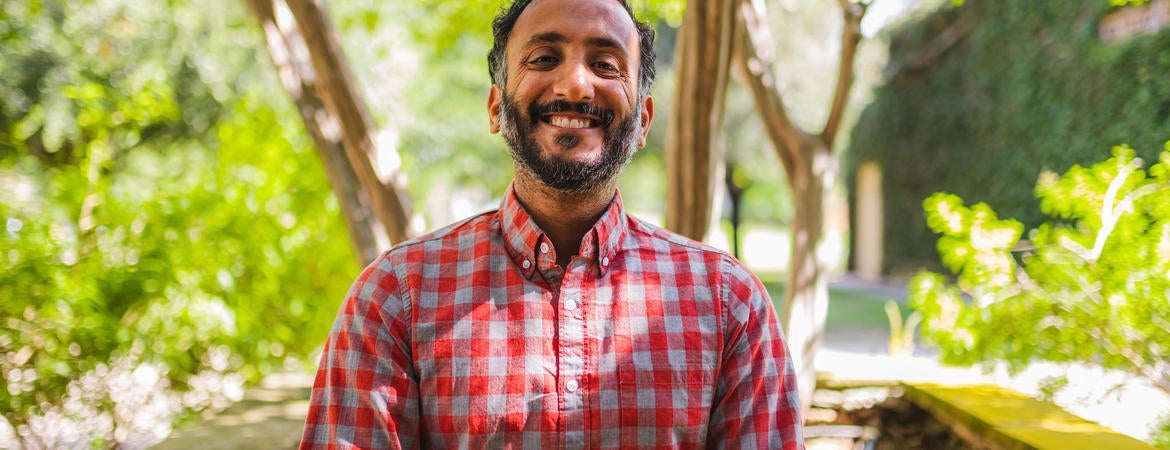Coronavirus (COVID-19) information and resources.
College of Humanities, Arts, and Social Sciences

Does more money and education make you less religious? That’s the question Ajay Verghese, professor of political science, hopes to answer with his research.
A Fulbright scholarship in 2017 made it possible for Verghese to travel to India to begin his research. In July 2019, Verghese will travel on a three-month Senior Short-Term Fellowship, funded by the American Institute of Indian Studies (AIIS). Verghese will use the fellowship to complete the second half of his research analyzing whether the country’s growing industrialization has any effect on Hindu religious practices.
“This project looks at the idea of secularization, which is this very old theory that says as countries become more modern, they become less religious,” Verghese said. “Usually what it means is, when we introduce mass schooling and have higher literacy rates and incomes, people in these societies tend to become less religious. A lot of these theories were developed for monotheistic religions, like Christianity and Islam, and I’m taking these bigger ideas and applying them specifically to Hinduism.”
Verghese will travel to various states to conduct his research, comparing the local Hindu populations of Cochin, a city in the southwest state of Kerala to the Hindu population of Putna, a city in the northern state of Bihar.
“What I did was, I picked the least developed and the most developed states for a totally diverse sample”, Verghese said. “I spent a lot of time in Patna, a city with a real lack of infrastructure with a lot of poverty and pollution. I did research in that city, and I did research in Cochin, a very cosmopolitan, more developed city with higher literacy rates. I’m comparing people who live in these two cities to kind of see how they have differing views on religion.”
By returning to these cities this summer, Verghese plans on building upon his previous findings, which have surprised him so far.
“The main thing that I’ve discovered is, the only thing that seems to decrease how religious people are, is better health,” Verghese said. “More education and more income doesn’t seem to make people less religious, but better health seems to be the only thing that seems to matter. The biggest surprise to me was I thought that as people got wealthier they might become less religious, but some of the surveys I did last time showed the opposite. People who are wealthier or more educated are actually more religious.”
Despite Verghese’s deep love for his research, he admits at times it can be challenging.
“I’ve always been interested in religion and politics,” Verghese said. “I feel pretty proud of the fact that the AIIS funded political science. It’s a pretty difficult grant to get, so that’s exciting. I find the research exciting, and I feel like I’ve learned a lot in the process. You forge relationships with people in other countries, but it can occasionally be frustrating. You might spend a lot of time with someone and still not be able to fully understand very much about them, or you might spend three months living in a city where you don’t know anyone at all. You have to be okay with being confused, and you have to be willing to think outside the box.”
Verghese is grateful to Senior Grant Writer Lynda Jenkins for her assistance in obtaining the grant, and plans on publishing a second book upon the completion of his research. Jenkins, who has assisted in writing almost 50 grant proposals in 2018 alone, praised Verghese’s research and professionalism.
“I found his work to be incredibly interesting,” Jenkins said. “I worked with him on multiple proposals, so I’ve gotten to be more familiar with his work. He is very thoughtful and easy to work with, and takes my suggestions to heart so as to make his work more understandable for someone who is not a subject expert. He is very insightful, and is very collaborative.”
To read more, visit www.washingtonpost.com/politics/2019/06/05/is-india-becoming-hindu-state